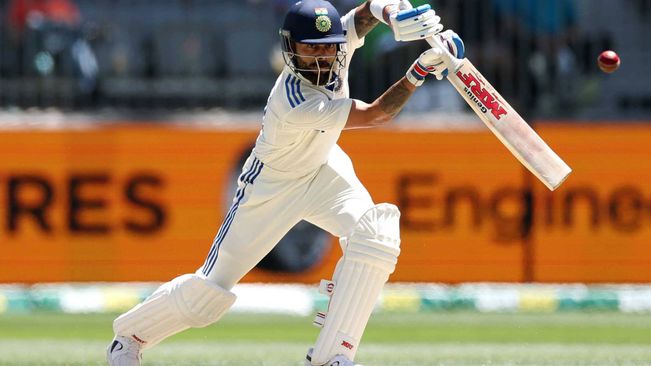Kohli, who started the ongoing Border-Gavaskar Trophy in Australia with a century in Perth, has since faltered, failing to cross 15 runs in his last four innings. His latest dismissal for just 3 runs in the first innings of the third Test at the Gabba underscored his vulnerability against the Australian pacers’ disciplined lines.
Speaking to broadcasters after Kohli’s soft dismissal, Gavaskar emphasised the importance of adapting and showing mental discipline, drawing a parallel with Tendulkar’s historic unbeaten 241 in Sydney during the 2003-04 Border-Gavaskar Trophy.
“Yes, I think practice is different, but what happens in the middle is different. The mindset is completely different. What happens in practice is, you know, if you play a bad shot, you can get away with it. But in the match, if you are out, you are out," Gavaskar said.
Kohli walked in with the intent to stabilise India’s innings after a shaky start. However, Josh Hazlewood exploited Kohli’s eagerness, tempting him into playing a wide delivery that resulted in a thick edge to Alex Carey behind the stumps. It was a dismissal reminiscent of Kohli’s recent pattern - chasing balls outside off-stump, often caught in the slip cordon.
Gavaskar noted this flaw and advised Kohli to revisit how Tendulkar addressed a similar issue during his 2004 Sydney knock.
"What I think Kohli can do is maybe have a look at what Sachin Tendulkar did way back in 2004. In the first three Test matches, he got out playing for the line outside the off-stump. He got caught at slips, short gully. When he came to Sydney, he decided he was not going to play anything in the cover region. He played only between the bowler's follow-through and to the right of the mid-off fielder, and everything else on the other side. That’s the resolve. He hardly played a cover drive; I think only after getting to 200-220 did he play one. That is the kind of mind control you should be having," Gavaskar added.
In the Sydney Test of the 2003-04 series, Tendulkar entered the match under intense scrutiny. Struggling with form, he had been dismissed repeatedly while attempting the cover drive, a stroke that had always been his strength but had become his Achilles’ heel during that series. Recognizing the Australian bowlers’ strategy, Tendulkar decided to completely eliminate the cover drive from his game.
“He hardly played a cover drive; I think only after getting to 200-220 did he play one,” Gavaskar recalled. “That’s the kind of mind control you should have.”
Instead of chasing deliveries wide of off-stump, Tendulkar focused on playing straight down the ground or on the leg side, showcasing extraordinary restraint and technical precision.
Over 436 deliveries, Tendulkar scored an unbeaten 241, anchoring India’s mammoth total of 705/7 before declaration. It was a batting masterclass built on patience and adaptability, as Tendulkar neutralised the Australian attack and frustrated their plans.
Gavaskar believes Kohli, like Tendulkar, has the ability to adapt and turn his form around. “Kohli has shown it before. You can’t score 9000 runs in Test cricket and hit 32 hundreds without having mind control,” Gavaskar said.
He suggested Kohli study both Tendulkar’s Sydney knock and his own successful innings from the past to rediscover his rhythm.
“What I think Kohli can do is maybe have a look at what Sachin Tendulkar did way back in 2004,” Gavaskar said. “Kohli should also watch videos of himself scoring big runs to remind himself of his technique and confidence.”
India’s struggle in the series continues, with the team reduced to 48/4 at tea on Day 3 of the third Test at The Gabba. Australia, having posted a formidable 445 runs in their first innings, were propelled by centuries from Travis Head and Steve Smith.
(IANS)
read more Sports News















